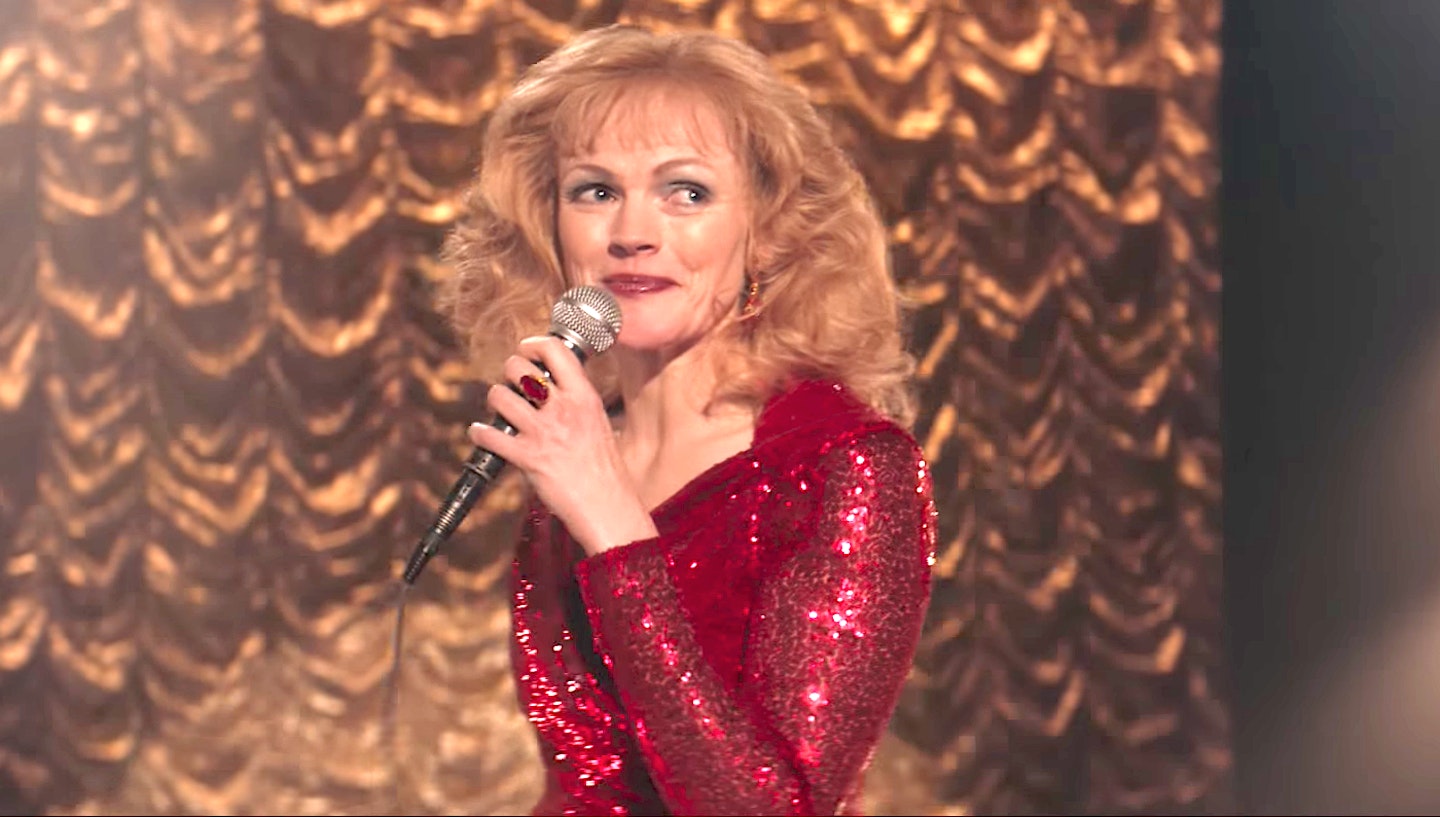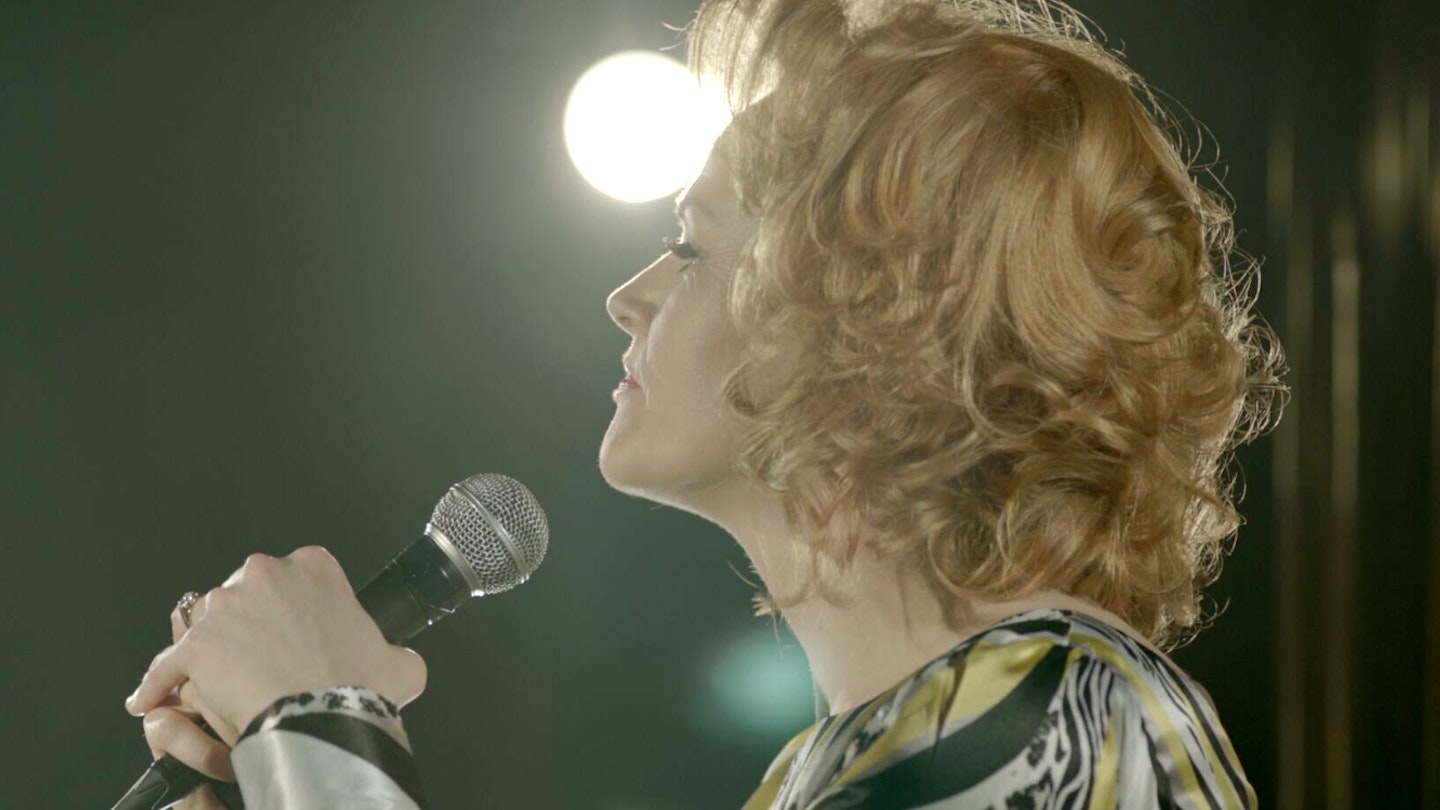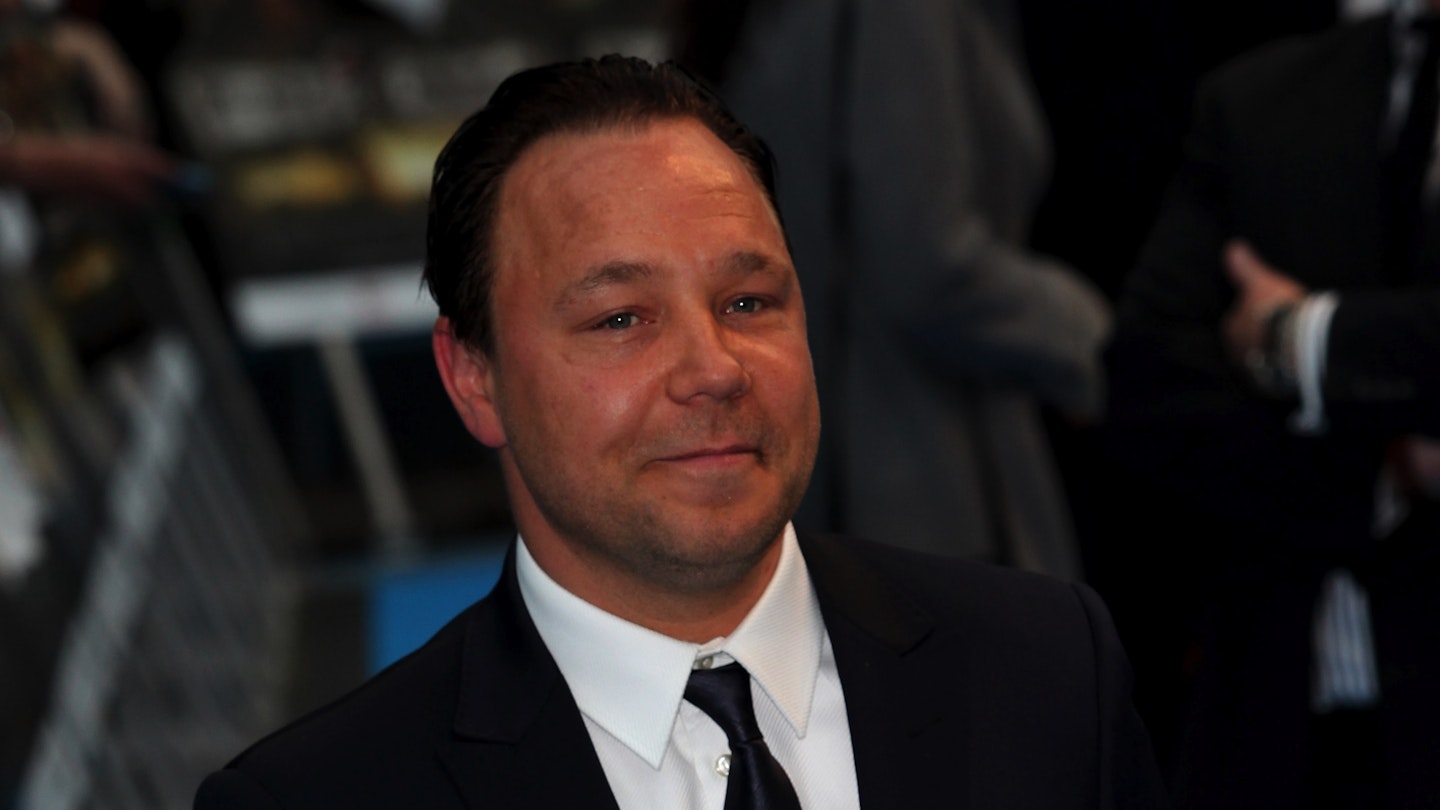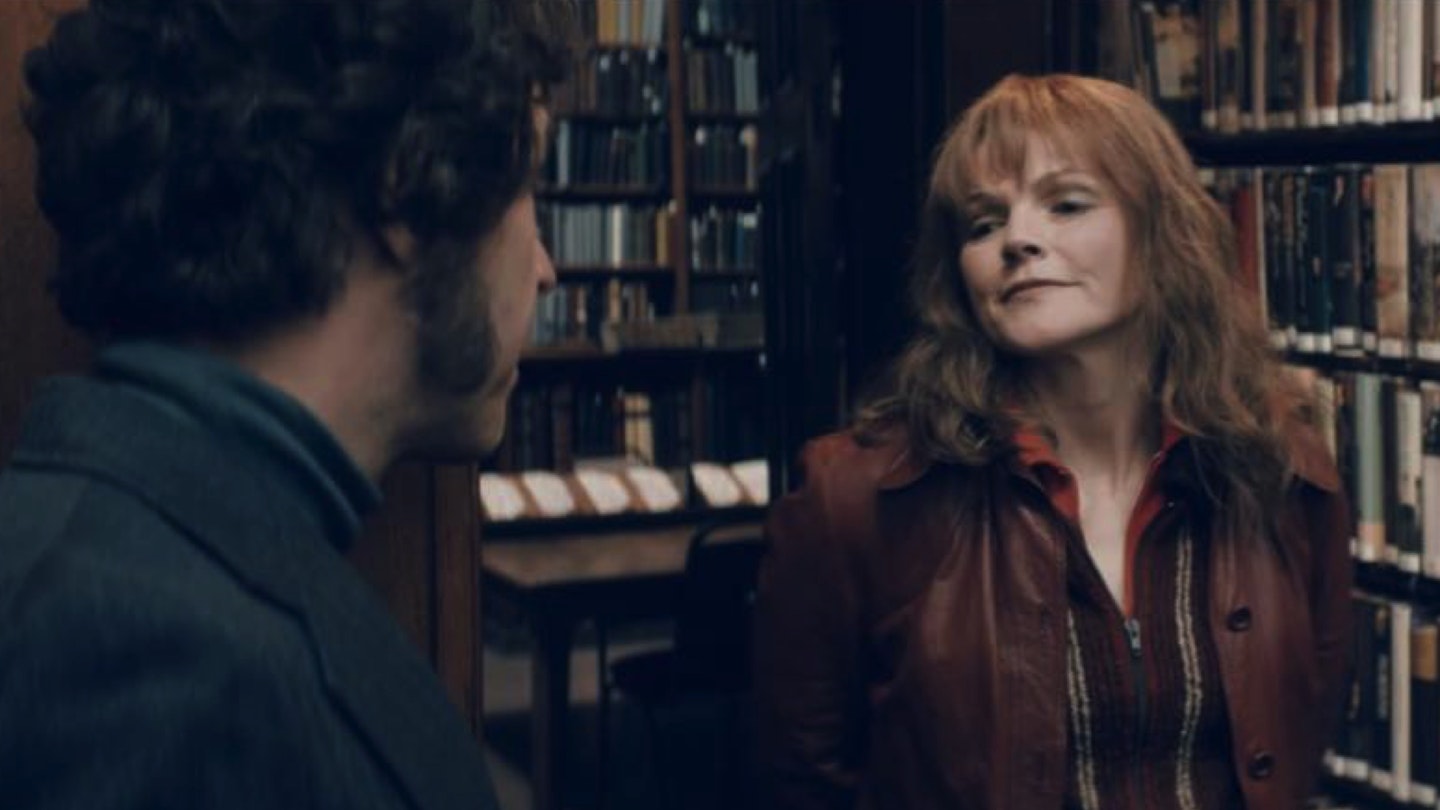Despite the title, Funny Cow is not a comedy. There are a lot of jokes, but — trust us — you’re not supposed to laugh at them. Even when the title character (whose real name we’re never told) gets her big, on-stage moment, her finally unveiled material is neither groundbreaking nor elevating. She’s really no better than any of the sweaty, mic-clutching men who indulge the casually racist, homophobic and sexist attitudes of
their fag-smoke-fogged crowd for the sake of a punchline. Her material is the kind you might have heard in an early ’80s playground, and will forever wince at.

For Funny Cow (the character), triumph is not about changing the world; it’s about making it in her own world. Or rather, surviving it without having to compromise who she is. Which makes Funny Cow (the movie) a curiously unconventional, fictional biopic. There’s no lesson to be learned here; no ‘rise and fall’ rollercoasting. If fame has a price for Funny Cow, she’s yet to settle the tab. And you sense she never will.
We meet her at her peak (no pun intended), at first soliloquising about her life to an unseen crowd, then later to an unseen TV camera. Then we hop around that life, weaving back and forth between childhood and adulthood like a tipsy bar patron as Funny Cow carelessly breaks the fourth wall, bends reality (at a few points meeting herself) and ruminates on what makes her her.
This is a character-piece, pure and simple.
For the most part, writer Tony Pitts (who also plays Funny Cow’s bullish spouse) keeps the film free of structural clichés. There is no glorious homecoming, for example; the full-grown Funny Cow does visit old haunts, but only to quietly catch up with family. Even then we’re spared any big, dramatic revelations. When she visits her brother (Stephen Graham), rolling up outside in her scarlet sports car, he and his wife panic and try to pretend they’re not in. We never even learn what their beef is. There is one jarring exception, though: an overcooked suicide scene which the story really could have lived without.
Really, this is a character-piece, pure and simple, one that’s dominated by Maxine Peake to such an impressive degree it feels like a one-woman show. Pitts and director Adrian Shergold’s oblique approach could be alienating, but Peake embraces us and draws us all the way in. We only see fragments of a whole story, almost carelessly arranged (inter-titles tell us we’re at “The Next Bit”, or “Another Few Years Later”), but the portrait she renders is complete and compelling. And complex, too. It’s a brave film which has its lead female character admit that, to her, love is someone shouting at her to shut up. As such, Funny Cow is definitely not for everyone. Especially those who make the fatal mistake of expecting ‘a laff riot’.


